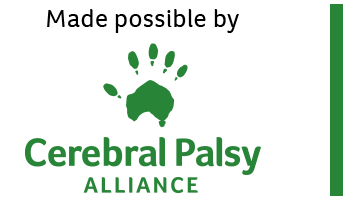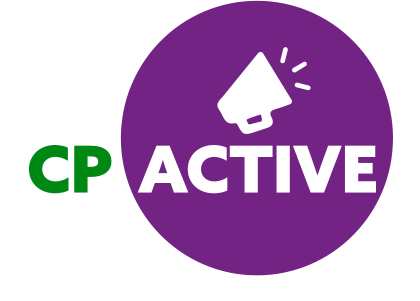Cerebral palsy is the most common physical disability in childhood, and behind every diagnosis is a story.
Right now in Australia, there’s no standard program for screening babies for CP. That’s why the Window of Opportunity campaign exists: to advocate for a national Baby Movement Screening program for every child born, or BaMS for Bubs.
At the launch event the CPActive community heard from four parents about their child’s journey to diagnosis and treatment. These are their stories.
Kylie
Kylie’s daughter Anika had a stroke shortly after she was born. At the time, it was devastating for her family, but Kylie says it was also lucky in a way, because it meant her health and development was closely scrutinised, and she received her cerebral palsy screening at only a few days old.
By 6 weeks, Anika was receiving intensive occupational and physical therapy.
“We know through having done our own research how incredibly important neuroplasticity is in babies and children, so I really do think that that early start for her has made a world of difference,” Kylie says.
“We went from having a little girl who had no idea she had a right-hand side of her body – we would have to pick up her arm and shake it – to now a little girl who has worked very hard over the last four and a half years, that she is able to do just about everything that a little girl should be doing at that age.
“That early intervention, as far as I’m concerned, has set her up for a life that she should have.
“I can’t believe there are so many kids who slip through the gaps because they don’t get that opportunity.”
Eden
Eden knew early on that her son Kingston wasn’t like other children. For months she was told that all children do things in their own time, that there was nothing to worry about.
But when Kingston’s first birthday arrived he was not hitting the same milestones other babies his age were, like sitting up independently, and Eden’s anxiety reached a fever pitch.
Finally, as Kingston was receiving his one-year vaccinations, the paediatrician remarked casually: “I think he’s got CP.”
“It hit me like a ton of bricks,” says Eden.
“I felt anger and disbelief. I just didn’t understand it. It wasn’t the world that I had ever thought that he would be in. I actually had no knowledge of CP at that time and everything that popped up [in my research] was very, very scary.”
In the months that followed, Kingston finally received his CP screening and assessment.
“Absolutely every baby in Australia born needs to have early screening… It’s so important for our future because that would have saved me. It would have given me peace of mind, at least knowing what path I was taking from 6 months onwards, not waiting, not every day pushing him… hoping that he would walk at 10 or 11 months and it just never happening.”
Eden has this message for the Federal Government:
“It is our duty of care to help create a better future for our children. We need to use science and health education to prevent any misleading diagnosis.”
Marelle
Marelle’s daughter, Katie, is 44 now, but when she was born early screening wasn’t heard of.
Like many parents, Marelle knew Katie wasn’t typically developing, but struggled to have her concerns taken seriously by medical professionals.
“We were told all along the way that she was a slow starter, that we just had to wait and see,” Marelle says now.
“I spent 9 months searching for an answer to what I believed to be a problem with my baby. I had a gut feeling from day one that there was something not quite right.”
After taking Katie to see two more paediatricians, several GPs and a chiropractor, they were finally referred to a cerebral palsy specialist, where Katie was diagnosed almost immediately.
Katie is now living happily in specialist accommodation and close to her family. But forty years later Marelle still feels the pain of her family’s struggle to get Katie diagnosed.
“Perhaps if there was such a thing as an early screening program life could have been different for Katie,” she says.
“That window of opportunity that we talk about was lost for her. There was nothing in that 9 months for her. Had somebody taken up her cause and sorted out on day one, when a mother says there’s something wrong with my baby, there could have been a different outcome.”
Anne
Grace hardly had a heartbeat at 35 weeks, meaning that even after she was born her mother Anne was always on the lookout for health complications.
“I really knew from the night Grace was born that it would be a different journey… I was always looking for things, milestones that Grace wasn’t hitting,” Anne says.
After “a diagnostic odyssey” they finally arrived at Cerebral Palsy Alliance, when Grace was 18 months old.
“We tried to make up for lost ground with really intensive therapy,” says Anne. “It wasn’t as early as what it should be by a long shot, but I was searching for a measured approach for helping Grace develop.
“My wish is that families don’t have to go on those sorts of journeys because… we really did miss those early years. Grace has done extraordinarily well… but I really feel that we lost those critical early days and weeks and months.
“When we were on our journey there was this concept of protecting the parents, and I really don’t understand that concept. I think that the earlier parents know and can be supported in the early stages of this journey… is the best start you could hope for.
“My message is the earlier [CP is diagnosed] the better… I wonder where we might have been if we could have put our energies into supporting Grace and really understanding Grace’s needs much earlier than what we were able to.”
—
We are so grateful to Anne, Eden, Marelle and Kylie for courageously sharing their stories and driving home why the Window of Opportunity campaign is so important for us.
If you have a story of your own, please share it with us at our Share Your Story page.

